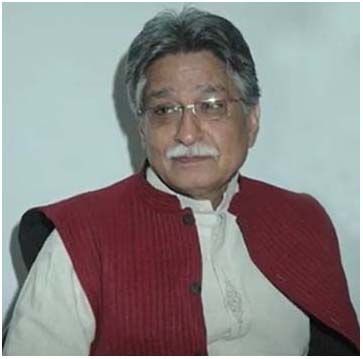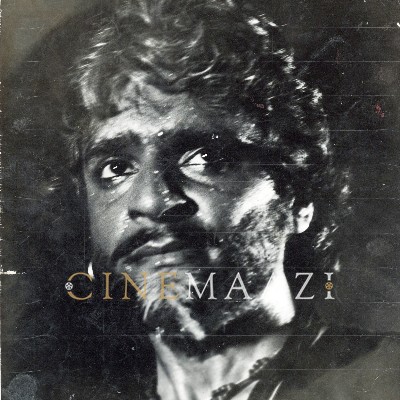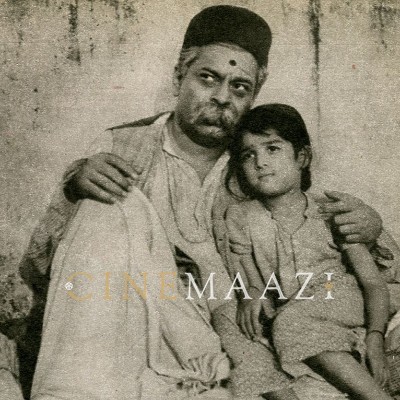Javed Siddiqui

Subscribe to read full article
This section is for paid subscribers only. Our subscription is only $37/- for one full year.
You get unlimited access to all paid section and features on the website with this subscription.
Not ready for a full subscription?
You can access this article for $2 , and have it saved to your account for one year.
- Born: 13 January, 1942 (Rampur, Uttar Pradesh)
- Primary Cinema: Hindi
- Children: Murad, Lubna, Sameer, Zeba
It is rare to find an award-winning Hindi and Urdu screenwriter, dialogue writer and playwright, who has worked across genres to create storyline, scripts, and dialogues for numerous critically acclaimed films as well as mainstream blockbusters. With more than 50 works to his credit, Javed Siddiqui’s many successes include Umrao Jaan (1981), Mammo (1994), Fiza (2000), Zubeidaa (2001) and Tehzeeb (2003); as well as Baazigar (1993), Darr (1993), Yeh Dillagi (1994), Dilwale Dulhania Le Jayenge (1995), Raja Hindustani (1996), Pardes (1997), Chori Chori Chupke Chupke (2001) and Koi... Mil Gaya (2003). He has been winner of awards such as the Filmfare Award for Best Screenplay for Baazigar, the Filmfare Award for Best Dialogues for Dilwale Dulhania Le Jayenge, and the Screen Award for Best Screenplay for Raja Hindustani. Having worked with a range of directors such as Satyajit Ray, Yash Chopra, Shyam Benegal and Subhash Ghai, Siddiqui has also been a keen contributor to theatre, serving as IPTA National Vice-President, contributing to the establishing of Marathi IPTA, as well as penning successful plays such as Tumhari Amrita, Saalgirah, Andhe Choohe, 1857: Ek Safarnama, and Begum Jaan.
Born 13 January, 1942, Javed Siddiqui graduated in Urdu Literature from Rampur, Uttar Pradesh. He hailed from a family of freedom fighters. While his great grandfather Hafiz Ahmed Ali Shauq was a historian and had written a number of books, he was also the first librarian of Shahi Qutub Khana now known as Raza Library. His father Shujat Ali, had served in the same library as an assistant librarian. Moving to Bombay in 1959, Siddiqui went on to work as a professional journalist for Urdu dailies such as Khilafat Daily and Inquilaab. Soon, he helmed his own newspaper, Urdu Reporter. Stepping into the realm of cinema, he began his career writing dialogues for Satyajit Ray's Shatranj Ke Khiladi (1977). Based on a story by Munshi Premchand, the film is set in 1856 at the court of Wajid Ali Shah in Lucknow, the capital of Oudh, on the eve of the Indian rebellion of 1857. He also assisted Satyajit Ray and James Ivory as his chief Assistant Director.
Over the years, Siddiqui went on to work on numerous films such as Chakra (1981), Sohni Mahiwal (1984), Baaghi A Rebel for Love (1990), Chauraha (1994), Zamaana Deewana (1995), Gaddaar (1995), Hum Dono (1995), Pardes (1997), Duplicate (1998), Taal (1999), Tera Jadoo Chal Gayaa (2000), Fiza (2000), Raju Chacha (2000), Blackmail (2005), Banaras (2006), Dus Kahaniyan (2007), and Sadiyaan (2010). He also wrote for television, namely Ramesh Sippy’s Kismet and Shyam Benegal's tele series Bharat Ek Khoj.
Active in the field of theatre, also being a national member of IPTA, he has penned the play Tumhari Amrita, based on A R Gurney's classic American play Love Letters. The critically acclaimed play featuring two actors, namely Shabana Azmi and Farooq Shaikh, reading out letters to each other, has been performed all over the world. It is also the first Indian play to be performed at the United Nations. While Siddiqui’s Saalgirah, starring Kirron Kher, dealt with the complexity of divorce in modern urban life, he has also adapted Bertolt Brecht to contemporary themes, His Andhe Choohe is based on Agatha Christie's Mousetrap, while 1857: Ek Safarnama is set in the Indian Rebellion of 1857. Other plays he has penned include Hamesha, Begum Jaan, Aap Ki Soniya and Kacche Lamhe.
Siddiqui has also written a book of pen sketches titled Roshandan.
Of his four children—Murad, Lubna, Sameer, and Zeba—Lubna Salim and Sameer Siddiqui are involved in film and theatre, while Sameer writes for Hindi films and TV soaps.
References
Image credit: https://www.youtube.com/watch?v=z474N8p4Xyc












.jpg)



